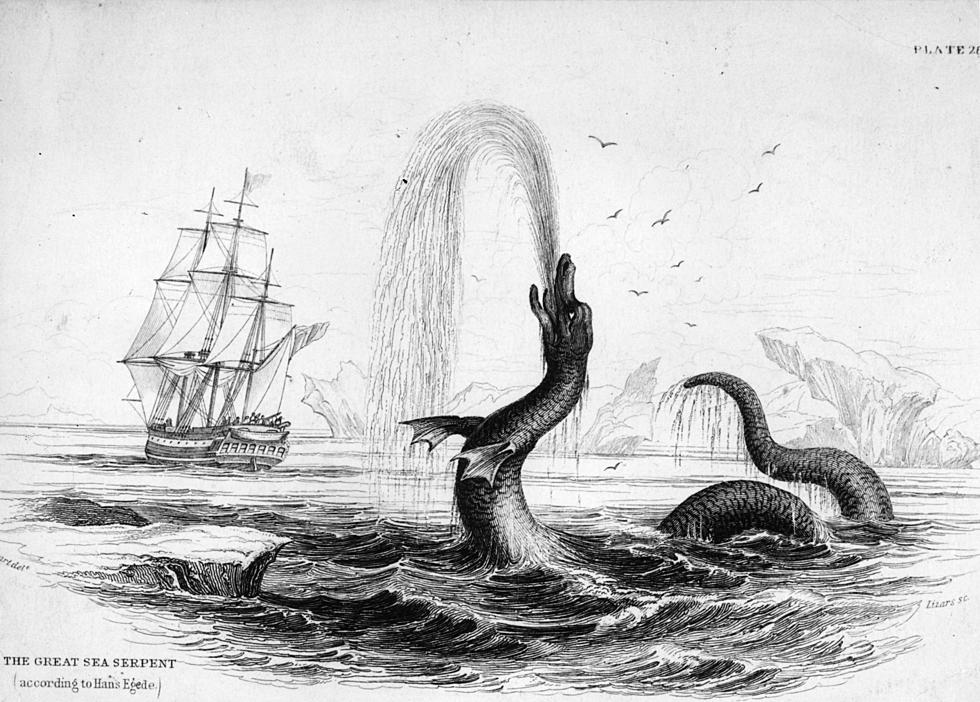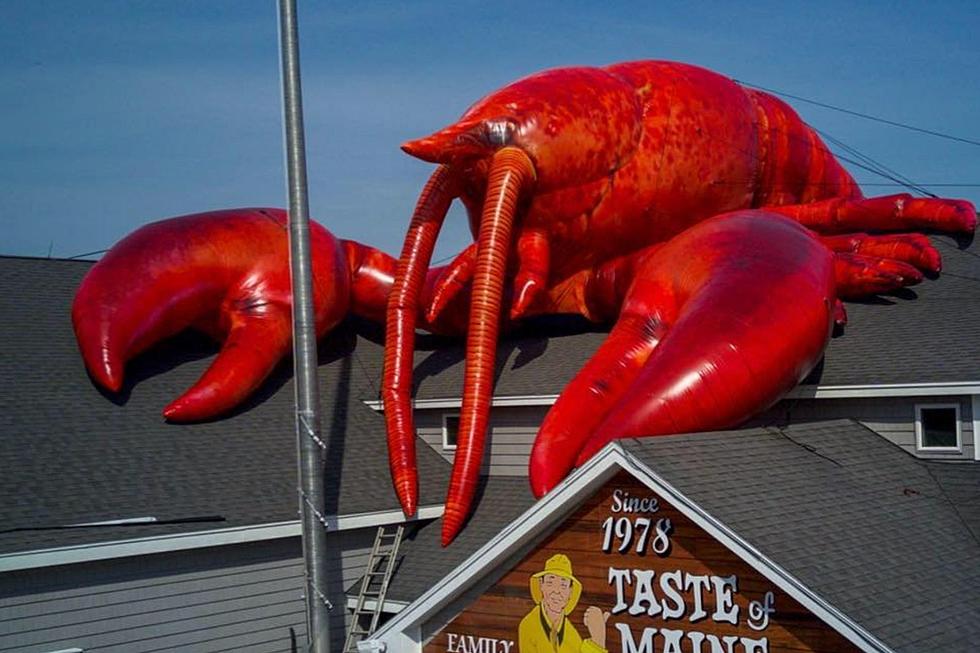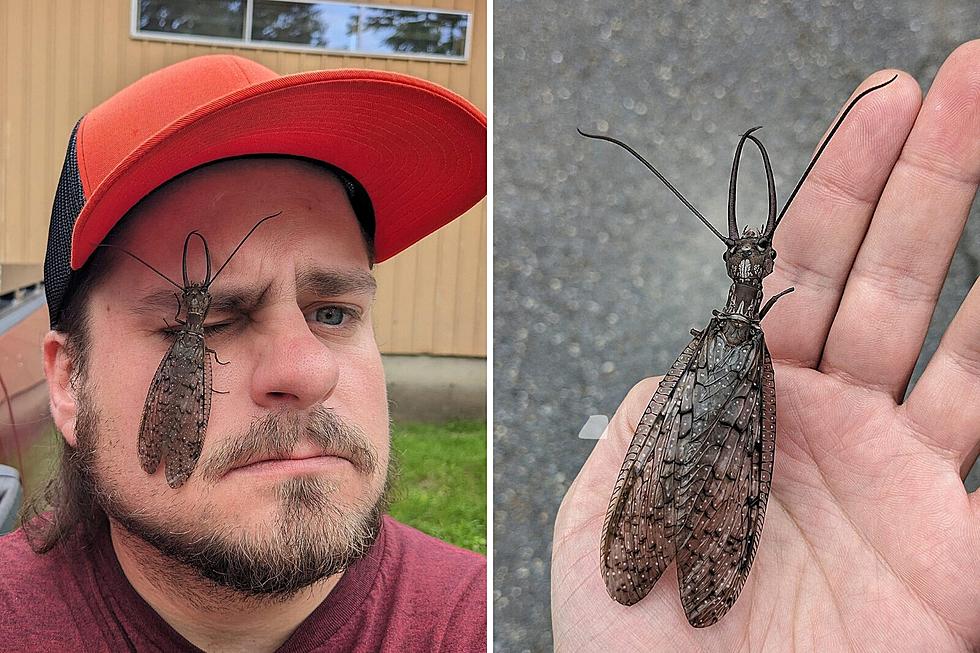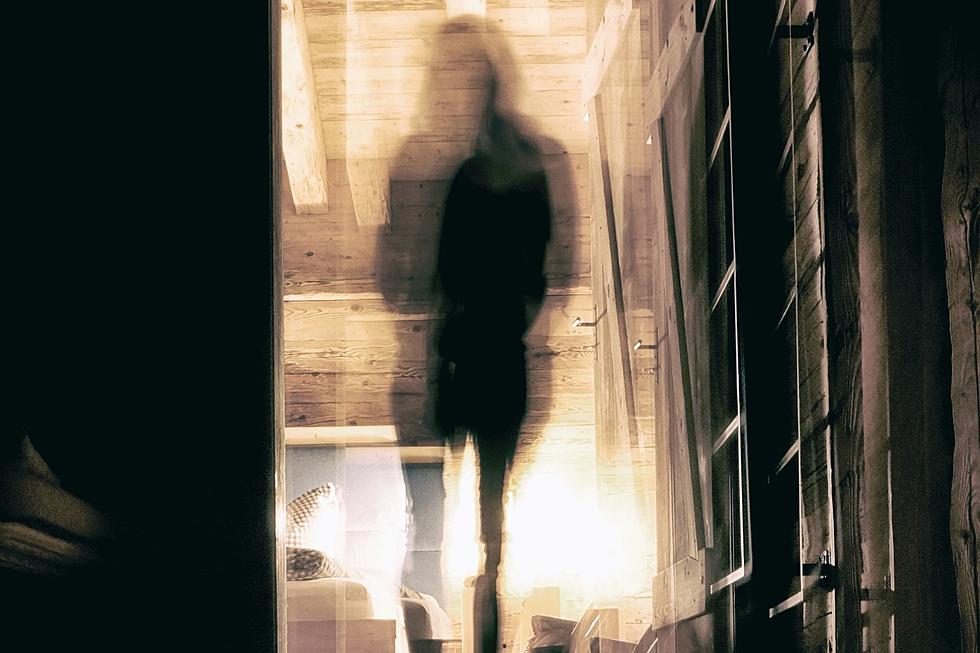
This Massachusetts Town Has the Most Sea Serpent Sightings in History
I’d heard of Champ – Vermont’s version of the Loch Ness Monster that supposedly hangs out around Lake Champlain. But despite being born on Massachusetts’ North Shore, I was this-week years old when I heard of a massive sea serpent in Gloucester they call The Gloucester Sea Serpent.
In the 1800s, the Gloucester Sea Serpent (GSS for short, I assume) was widely reported by sailors in the Gloucester and Cape Ann area, as reported by Salon.
It would seem this could be fairly easy to dismiss; however, things only intensified when a bizarre, black snake was discovered on the shore and believed to be the offspring of the Serpent.
As Maury Povich was not yet born, officials had no choice but to embrace this as a possible theory. In fact, a pamphlet was even published about the creature, dubbed “Scoliophis Atlanticus.”
That's just a drawing of a sea serpent.
And despite a researcher ruling that the Baby Serp was just a common snake, that theory was deemed boring. So, the sightings continued, and the Gloucester Sea Serpent became one of the most documented alleged sea serpents in recorded history.
Its description grew more…descriptive…with locals claiming to have seen a sharp, spear-like object protruding from the Serpent’s head. But before children could worship the world’s first known amphibious unicorn, acclaimed skeptic Joe Nickell surmised people had likely seen a narwhal or whale with a large tusk.
It’s hard to know exactly who to believe; scientific researchers, or a community that takes turns walking along a greasy pole each summer. So, like the Devil Monkey of Danville, New Hampshire, the legend of the Gloucester Sea Serpent lives on…
Eight Wicked Bizarre Mysteries of Massachusetts
10 Strange New Hampshire Unsolved Mysteries
More From 94.9 WHOM









